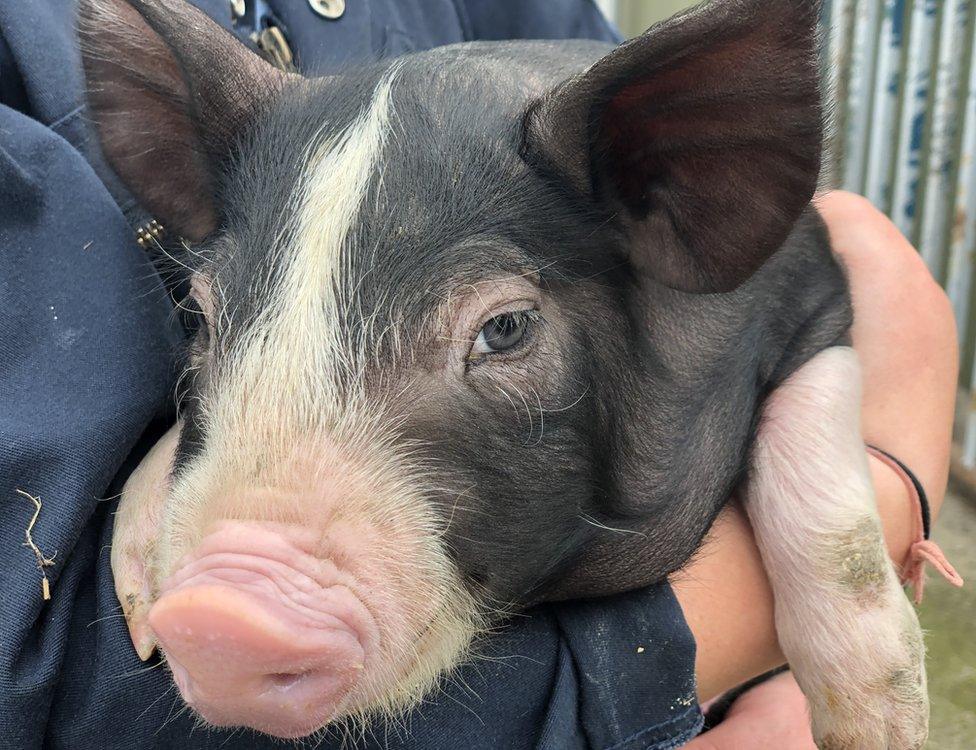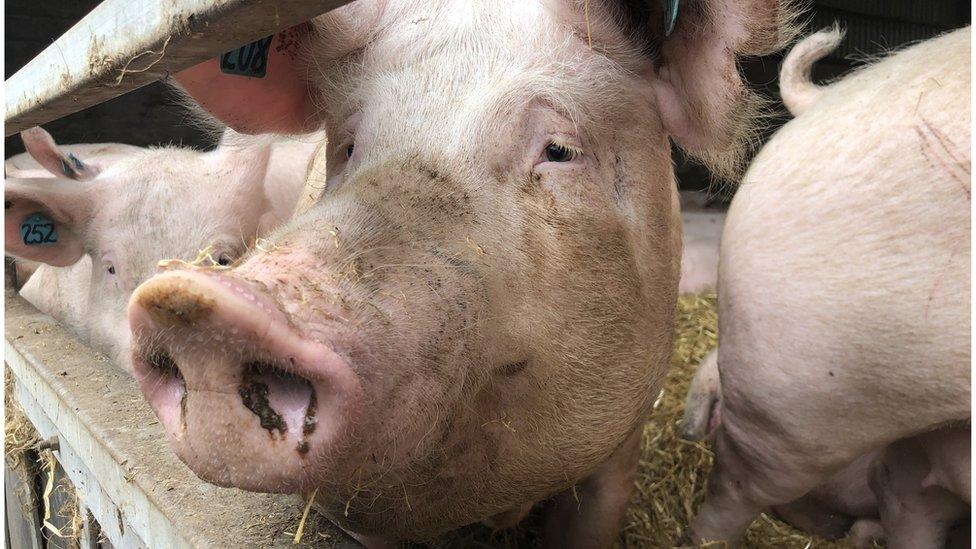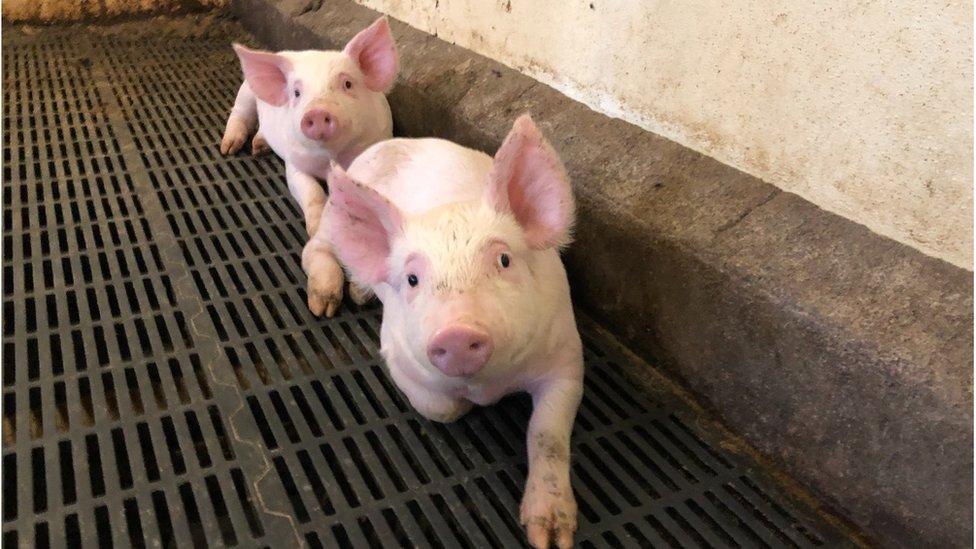I have sleepless nights about how to feed my pigs
- Published
Harriet Ross says rising costs are a huge worry for pig farmers
Harriet Ross admits to having days where she's sick of farming. Pig sick.
She is trying to run a pig farm at Newburgh in Aberdeenshire but costs and overheads are getting out of control.
Her farm aims to grow enough barley to feed the pigs in all seasons but this year it ran out almost six months early.
Harriet points to a range of factors including Brexit, coronavirus and the war in Ukraine which have created difficulties which are pushing her business to the brink.

Young piglets have to be kept in temperature-controlled rooms all year round
Young piglets have to be kept in temperature-controlled rooms all year round so rising electricity prices are having a crippling effect on the business.
"Welfare of the pigs is the number one priority so we need to make sure that (the temperature) is at the right level for them and we need electricity to do that," she says.
Harriet's energy bill has just doubled from £60,000 a year to about £132,000.
But that's not even her biggest overhead. About 70% of the cost of running the farm is feed.
Harriet and her partner Ben have tried to create a circular system where they grow enough barley to feed the animals in all seasons.
But a shortage of migrant workers at the abattoir created a backlog in processing the pigs, meaning they had to keep them on farm for longer.
Those extra mouths quickly ate through the grain store which ran out back in March.

The next harvest is late July or early August and until then they're seeing bills stacking up.
She says the harvest will be "quite a big relief but actually paying for the fuel (for the machinery) won't be."
The last few months have brought sleepless nights as they try to buy cereals for the pigs to eat.
While prices have been extremely high, the biggest difficulty has been getting hold of it.
With just a week's worth of food left, she estimates making about 50 phone calls before she could find any more.
At just 30, Harriet only became a full-time farmer last year when she took over her parents' arable business.
Around the same time, a neighbouring pig farm went on the market and so she took on that too.
It's not been the easiest of starts and she says she feels "guilty" that she might not be doing a good enough job to make the business work.
"In the middle of the night I'll wake up and check the bank account," she admitted.

Rising input costs - from feed to fertiliser - are having a huge impact on farmers across the country.
As the Royal Highland show takes place at Ingliston near Edinburgh, the biggest showcasing farming and rural life in Scotland, NFU Scotland said overheads for farmers were reaching unprecedented levels.
It said the situation had created a "cash flow crisis" and the Scottish government has agreed to bring forward the date for issuing farm payments from October to September.
The NFU commissioned a survey of members which says many are already reducing the size of their farms.
In the pig sector, sow numbers are decreasing by about 30% while beef cattle and ewe numbers are being cut by 38%.
NFU Scotland President Martin Kennedy said: "These results must serve as a wake-up call and move food security to the top of the political agenda.
"Reductions in agricultural production on this scale, if replicated across our whole industry, will have significant ramifications for our food and drink sector and all those businesses upstream and downstream who rely on farmers and crofters."
But a report by Scotland's Food Security and Supply task force has said there is no immediate threat.
It has recommended that the Scottish Government set up a Food Security Unit to monitor potential future threats, such as from climate change.